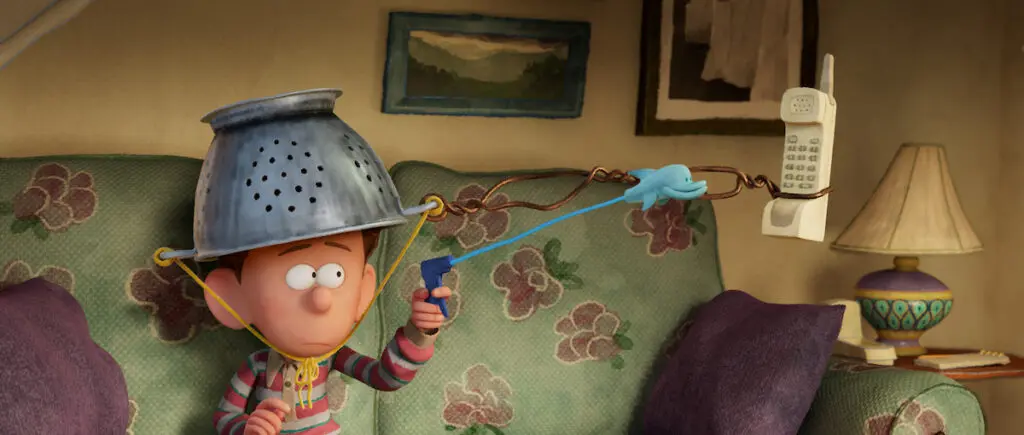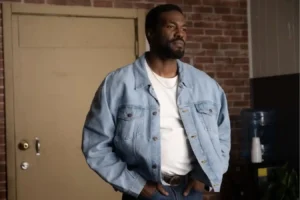Netflix animated fantasy drama Orion and the Dark is based on the much-loved book by Emma Yarlet and follows the story of young Orion, plagued by anxiety and irrational fears of, well, nearly everything. He is scared of the dark but is also not keen on dogs, bees, or falling — the list goes on, and you can’t help but realize that Orion is suffering from more than just a childhood fear. Let’s unpack the meaning behind the film and its themes.
Is Orion and the Dark about anxiety?
The dictionary definition of anxiety states that the emotion is “a feeling of worry, nervousness, or unease about something with an uncertain outcome”, and Orion certainly seems to be dealing with that. He worries, pretty needlessly, about everything, and the picture book that was the inspiration for the DreamWorks film tells a kind of Scrooge-like story, with Orion visited by a supernatural personification of his fears named Dark. He is then forced to face his emotions, leading to his eventual understanding.
Orion confronts his fear, with the help of a misunderstood benefactor, and it allows him to move forward with his own life, and it is easy to replace “Dark” with anxiety. The film is adult-friendly, so it can be watched at different levels, depending on your perception of the material, and it is easy to see why people can relate to Orion’s fears as someone struggling with anxiety and possibly mental health. If that feels as if we might be reaching, the reason behind the assumption may be validated when we take a closer look at the writer behind the project.
Who adapted the book?
Taken from the original picture book, the adaptation is by Charlie Kaufman, and if the name sounds familiar, you are probably remembering it from his excellent work on films like Eternal Sunshine of the Spotless Mind and Adaptation. The story, through the lens of Kaufman, cannot help but resemble Kaufman’s style, adding depth and nuance to the original story.
If there is any downside to the approach, it could be argued that the innocence of the source material is burdened by Kaufman’s weighty style. Is Orion suffering from anxiety? He most certainly is, and Kaufman makes sure we know it.
What’s the meaning behind the movie?
Ascribing a meaning to a work that is so open to interpretation is always difficult. Some will see this as a story of overcoming fears by understanding them, and others may see it as a parable for the anxiety we all feel while having to deal with everyday situations, so it can be viewed in certain ways depending on who is doing the viewing. If we had to define it, we would say that the film’s message is one of understanding fear and rationalizing it so we can conquer it.
Audience Reaction
Reviews have been mixed for the film, but it does have a healthy 6.5/10 on IMDb. RogerEbert enjoyed the film for “doing the “Pixar Thing” better than most recent Pixar movies.” The Guardian also rated it above average with three stars out of five, however, Variety would call it “bewildering” and “awkwardly derivative.”
If there is one criticism that pops up in various reviews, it is the over-complication of the screenplay when compared to the more pure and succinct source material.
Fan response to the film has also been fairly positive:
Loved #OrionAndTheDark on Netflix! Appreciated its themes around fear, anxiety and judgment and how deep it went with it. I initially felt the story and writing was loose and messy, but once it clicked why, it became genius. And of course, very pretty movie. Recommended! pic.twitter.com/2plGH92Pxf
— Mike Kobela (@MikeKobela) February 2, 2024
thought #orionandthedark was really cute, wanted to draw the other night entities for fun pic.twitter.com/CM6RyCwN9J
— Stabby! — #FREEPALESTINE (@ST4_BBY) February 3, 2024
On paper, Orion and the Dark is a kids’ movie, but it might be safer to say it is a family film, as the narrative approach and direction elevate it above a simple kids’ movie, and place it in the same stable as Toy Story or Inside Out.




